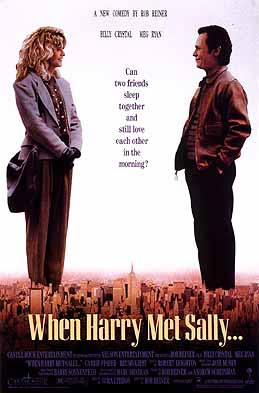Released 1996 by Universal Pictures, written by Andy Breckman, based off of the Phil Silvers show, created by Nat Hiken.
Sergeant Ernest Bilko is a scheamer who repeatedly leaves his long-running fiance at the alter and runs illegal gambling operations behind his superiors' backs. When his old C.O., Major Thorn(Phil Hartman, perhaps the only good thing to come out of
Greedy), arrives to audit progress on development of a "hover tank" (and settle a personal score with the Seargent), Bilko has to find a way to save his own skin and that of his base, Fort Baxter.
The Cast is fantastic! It's billed as a Steve Martin vehicle, but Bilko's really an ensemble piece. Glenne Headly, Daryl Mitchell and Dan freak'n Ackroyd round out the primary cast. Steve Martin's a wonderful physical comedian, but It seems the burden of whoever gets stuck on screen with him while he's doing schtick to bring in truthful reactions to the scene and make it believable! Which everyone (particularily Headly and Mitchell) do in spades.
Even the bit players are brilliant! Nearly everyone of the men in the motorpool get a scene-stealing moment, from Spc. Paparelli in drag (Max Casella) to Major Ebersole (Austin Pendelton...again) fantastically losing a game of poker the entire roster is amazing.
If you wanted to find a fault with the film, the characters are pretty thinly drawn. Bilko, and everybody else are basically Looney Tunes. Every character's pretty much a one-trait gag: the greedy one, the fat one, the mean one, the dumb one etc.
Major Thorn (the mean one) wants revenge on Bilko for sending him to Greenland. He breaks into Bilko's records and finds explicit evidence of every illegal gambling ring and dog race Bilko ever organized. That would be enough for a court martial, but Thorn takes it one step further and frames Ernie for diverting funds, claiming Fort Baxter's "Hover Tank" is a fraud. This claim gives Bilko the solution in the third act, when he and the motorpool successfully fly the tank and save the day.
A reasonable person in this situation would find the real evidence, turn it in, get Bilko booted away, simple. Only a complete caricature of obsession like Thorn would shoot himself in the foot like that, defying all common sense. I could whine about how this makes him a weaker antagonist by lowering his competence and threat level, but I won't.
Having excellent actors play a gang of incredibly broad characters serves a definite purpose: the story's over-the-top, but excellently constructed.
More specifically, it has a point. In "Story" Robert McKee makes mention of "the controlling statement", a brief dictum that sums up
what happens and
why. As he puts it
"
The more beautifully you shape your work around one clear idea, the more meanings audiences will discover in your film as they take your idea and follow it's implications into every aspect of their lives".Brian McDonald, author of "Invisible Ink", calls this the
armature, like the wire skeleton of a clay sculpture, and also make mention, that in motion pictures, this moral (if you will) is often expressed offhand in a line of dialog.
In one of the very first scenes, Sgt. Barbella tells newcomer
Laredo-I mean, Holbrook:
"That's the golden rule around here, you don't say nothing unless you're prepared to back it up." Throughout the film, everything revolves around proving claims. Ernie Bilko tells Rita he loves her, but he has to prove it by being there for her, and (eventually) marrying her.
The biggest laughs come when character's have to justify their lies. Like why Bilko has a horse on a crane, and why Sgt. Henshaw (John Marshall Jones) has a closet full of dresses in a room he claimed was his (*gasp*SPOILER: it isn't).
In the finale, Bilko and his men "prove" the hover-tank works by faking the field demonstration. Thorn knows this is impossible since he personally sabotaged the tank's firing controls before, and accuses Bilko of trickeryh. When the visiting General asks him how he knows the tank can't work, Thorn (in True Daffy Duck fashion) indites himself out of frustration.
Bilko's a solid piece of work, thought out, well constructed, marvelously cast, and as always with Jonathan Lynn's movies, with
Tony Lombardo's crisp editing keeping the pace brisk and enjoyable. Some places do drag, like the super-fake CGI on the Hover-Tank (hey, it was 1996!) but the film's got it where it counts.
In ticket sales,
Bilko did twice the overall revenue of
Greedy, and certainly has had a better track record critically, in television rotation and home video/media sales
. A grand improvement, I'd say.






















